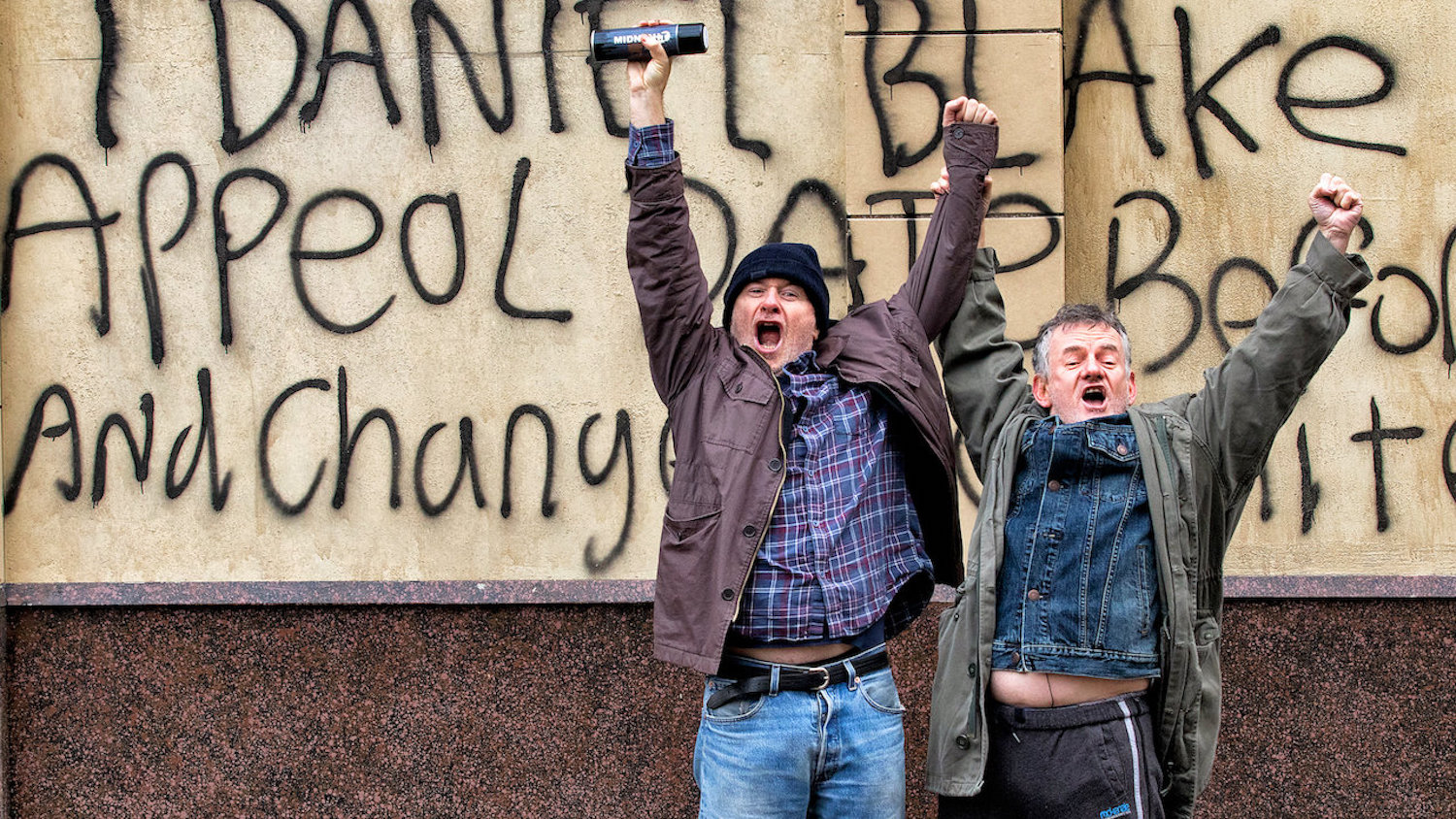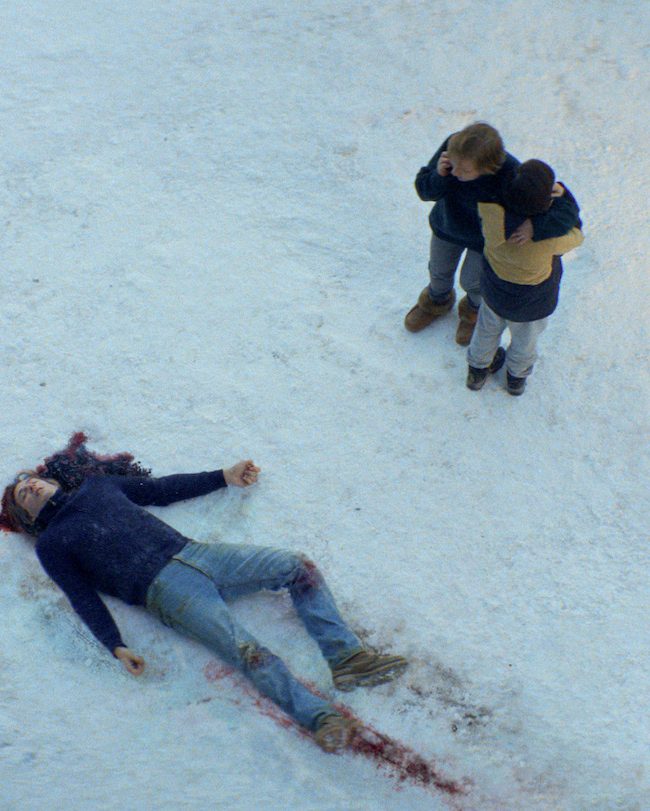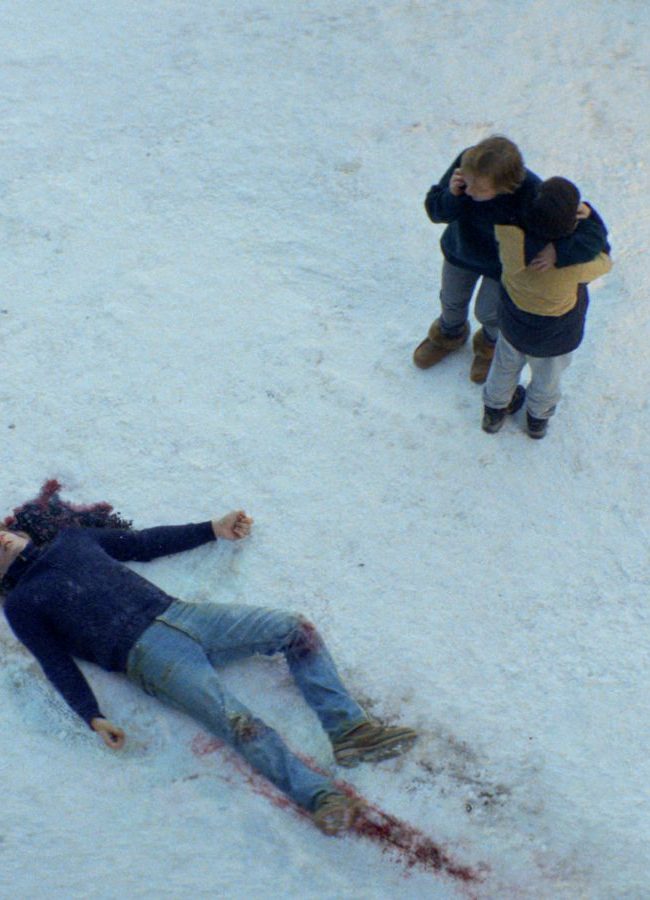
Winner of the Palme d’Or (Best Picture) at this year’s Cannes Film Festival, I, Daniel Blake – from Ken Loach (The Wind That Shakes the Barley), Great Britain’s cinematic champion of the underdog – tells the sad tale of its titular working-class bloke as he struggles against government bureaucracy after being sidelined by a heart attack. Caught in a perverse limbo where he is neither eligible for work nor eligible for unemployment benefits, yet unable to fill out the necessary online paperwork because, at almost 60, he has never learned how to use a computer, Blake finds himself at real risk of not only losing his home, but also his life to a second cardiac arrest. As he attempts to navigate the soulless system that sees him as old and useless – befriending and helping a young single mother of two along the way, whose own situation is even more desperate – Blake does his best to hold on to his dignity, which is the only currency left to him. It is hardly a fair fight.
Loach has long made films that attack the cruelty of a society determined to reward its winners only, the losers be damned, whether those losers be average folk without resources, Irish Republicans or anyone else in need of his helping directorial hand. He is known for working cheaply, and for a bare-bones aesthetic that tells the story without filmic frills. Now 80, his career spans 6 decades, beginning first at the BBC and then with his debut feature Poor Cow, in 1967. Many of his movies feel like an extension of the Italian Neorealist movement of the 1940s and ’50s, emphasizing as they do the plight of the disenfranchised. Loach’s latest opus shares much in common with Vittorio De Sica’s 1952 Umberto D, in which the protagonist’s situation goes from bad to worse. There, De Sica used a little dog – the elderly hero’s sole companion – as a device to heighten the drama. Here, Loach eschews such cute tricks (this is not a criticism of Umberto D, however, which I love), keeping the focus squarely on Blake, his neighbors and that poor, terrified mother and her children.
We are constantly on the edge of our seats, worried about what will happen, yet the film is not without levity and grace, thanks to stand-up comic Dave Johns in the lead role, Hayley Squires (Blood Cells) as the mother, her kids, and a rich tapestry of supporting players that populate this working-class universe with believable three-dimensional characters (except for the government employees, who are mostly one-dimensional). If the movie has a flaw, it’s that the ending comes not as a shock, but as the predictable outcome of all that has transpired before. Still, as an exposé of the systematic degradation of the human spirit, it is a powerful condemnation of the perils of a capitalism that jettisons the weak. Take heed, for we are all potential Daniel Blakes.
– Christopher Llewellyn Reed (@ChrisReedFilm)











